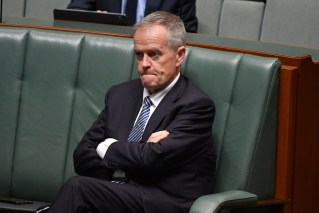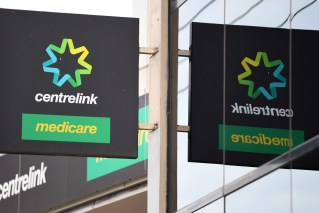Survey finds booming house prices forcing people out of the market
Westpac may have discovered the first chink in the housing boom after its consumer sentiment survey found buyers, particularly younger ones, were starting to walk away from the market as prices climb.


Brisbane house prices have recovered their losses
The survey may have also detected a splinter in the national mood which it described as extraordinarily high, as younger people were not only affected by house prices but were feeling left out of the economic recovery.
Limited employment opportunities, weak wages growth, and concerns about the affordability impacts of a renewed rise in house prices may have weighed disproportionately on younger Australians over the last year, it said.
The survey’s “time to buy a dwelling’ index fell 3.1 per cent and was now 8.6 per cent below its peak in November. It coincides with a rise in the median house price in Brisbane to $577,000 with an expectation of a further 10 per cen rise this year as interest rates remain low.
Westpac chief economist Bill Evans that the measure tended to reflect shifts in housing affordability and its decline in recent months suggested increases in house prices may already be starting to weigh on purchasing sentiment.
“This ‘affordability’ factor is apparent in the age group breakdown, with buyer sentiment much weaker amongst the 18–24 age group than in other age groups.’’
Adding to that was a 6.5 per cent lift in the Westpac Melbourne Institute Index of House Price Expectations, which was at a seven-year high and above its pre-pandemic level.
The consumer sentiment survey also detected a slump in overall consumer confidence in Queensland.
Evans said that despite the strong level of consumer confidence nationally it fell 8.8 per cent in Queensland and 7.8 per cent in Western Australia, which he said may have been related to the short lockdowns in Brisbane and Perth recently.
“Nationally, confidence has clearly lifted substantially above pre-pandemic levels,’’ Evans said.
“The overall Index is now 14.2 per cent above its pre-pandemic level in February 2020.’’
But not all age groups have rallied. Among the 18–24 age group sentiment fell by 2.3 per cent whereas in the 25–44 age group, confidence has lifted 20.8 per cent; and in the over-45s it increased by 13.7 per cent.
“Part of this under-performance from the younger age group may reflect a less enthusiastic response to vaccine developments,’’ Evans said.
The survey detail also suggests this younger age group has had a more difficult time financially. The ‘finances compared to a year ago’ sub-index for 18–24 age group is down 11 per cent on a year ago (in three-month average terms).
Evans said a test of the high confidence level will occur when the JobKeeper subsidy ends on March 28.
He said Australians had a $200 billion buffer in household saving to carry them through any lean time following the end of the subsidy, which is still being paid to an estimated 1 million people.
Evans said that level of saving combined with the high confidence level indicated the economy should cope well.












